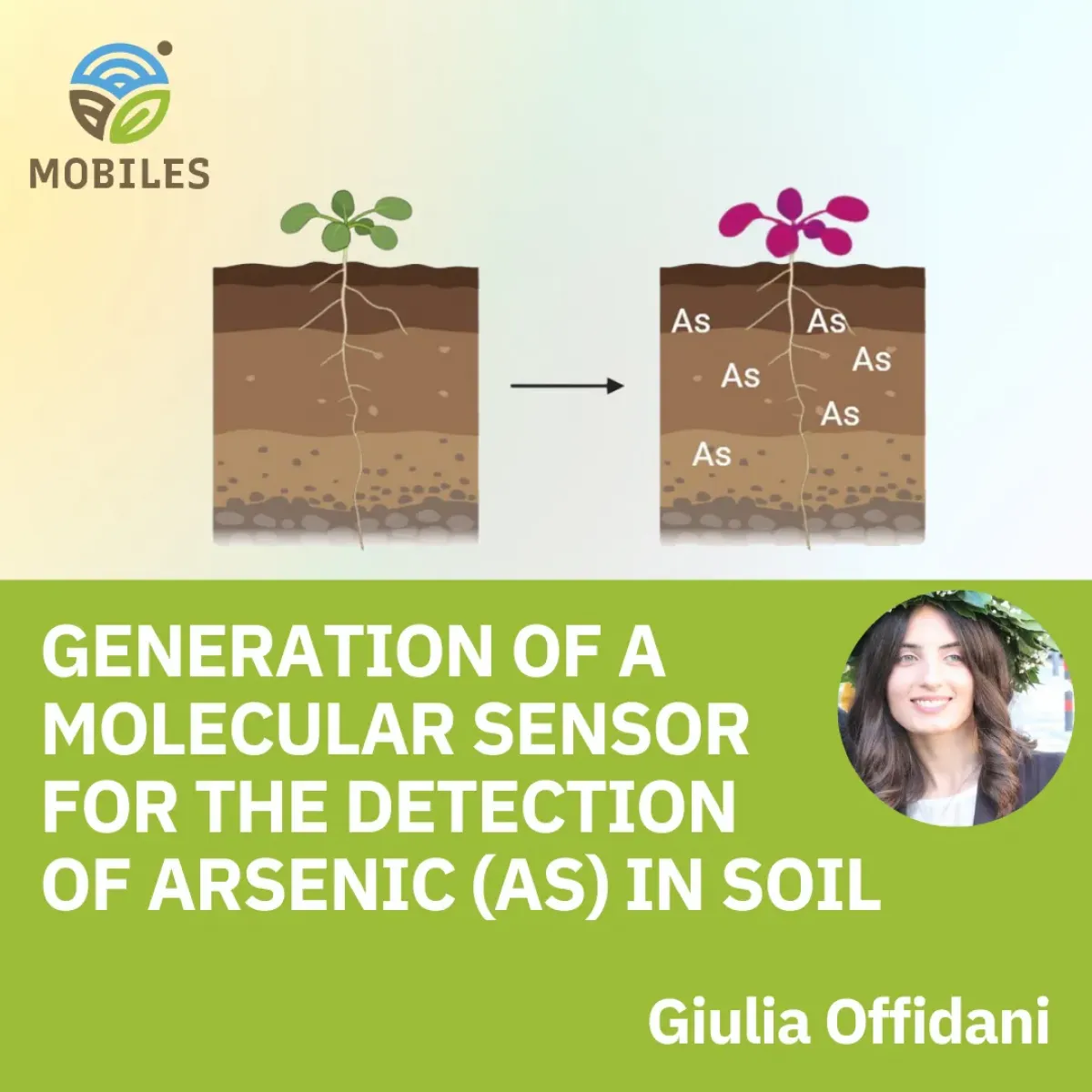
Giulia Offidani completed a thesis on arsenic-detection plant biosensors as part of the MOBILES project.
Having participated in the MOBILES project, she successfully defended her thesis, 'Generazione di un sensore molecolare per la rivelazione di arsenico (As) nel suolo' ('Generation of a molecular sensor for the detection of arsenic (As) in soil'), and obtained a Master's degree in Genomic Biotechnology for Industry and the Environment at Sapienza Universita di Roma.
Her research under the supervision of Raffaele Dello Ioio, addressed an urgent environmental issue: the increasing concentration of arsenic in soil, which has a negative impact on plant development, including reduced root and shoot growth, leaf senescence, and decreased crop yield, and poses serious health risks, such as cancer, neurological disorders, cardiovascular damage, and blindness.
Giulia's work led to the creation of genetically engineered
Arabidopsis plants that act as living biosensors. By introducing the yeast
transcription factor YAP8, the plants activate the red reporter gene Ruby only
when arsenic is present in the soil, turning visibly red. This provides a
simple, low-cost and intuitive tool for detecting arsenic contamination.
The thesis also explored plant traits that influence arsenic
uptake and tolerance, offering insights for the future development of more
resilient and efficient monitoring systems.
Her work is an important contribution to the MOBILES project. The developed plant biosensor represents a promising step towards the fast, visual and sustainable detection of soil contaminants.
We congratulate her on this achievement and thank her for her valuable contribution to the MOBILES consortium's research efforts.